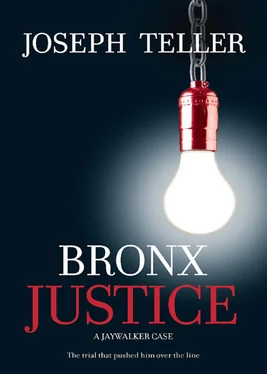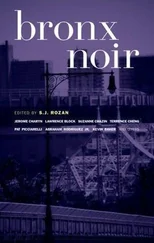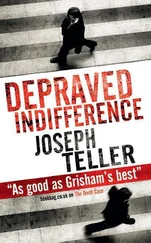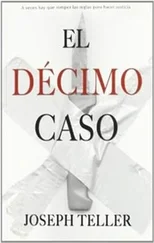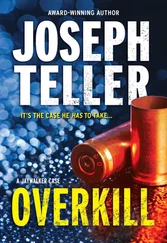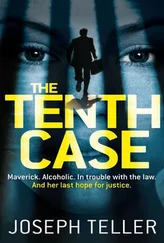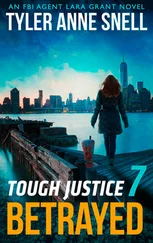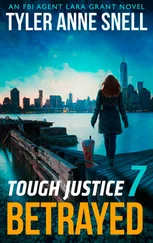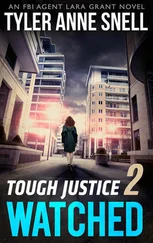1 ...6 7 8 10 11 12 ...16 The 18th came, and with it the first court appearance before the man who would become Darren Kingston’s trial judge.
Even though it’s a jury that renders the verdict, the judge can affect that verdict in many ways—some major, others minor; some obvious, others subtle; some entirely legitimate, others highly inappropriate. The judge decides if the defendant remains out on bail or is returned to custody once the trial commences. He rules on motions, acting as both judge and jury at pretrial hearings. He decides which items of evidence will be allowed in and which will be kept from the jury. A judge can shape the outcome of a trial by sustaining or overruling a single objection, or by the way in which he treats one lawyer or the other in front of the jurors, or by something so seemingly insignificant as the inflection of his voice when he reaches a key word or phrase during his charge to the jury. So it not only matters who the trial judge is, it matters a lot. Any lawyer who doubts that ought to think seriously about another career.
Max Davidoff was in his mid-to late-sixties, but his face was deeply lined and his hair nearly white. To Jaywalker, he looked like what a judge was supposed to look like. Prior to being appointed and then elected to the bench, he’d been the District Attorney of Bronx County. In other words, Jacob Pope’s boss. Jaywalker did his best to assure the Kingstons that that fact alone was no cause for either disqualification or concern. Indeed, he told them, it was former defense lawyers who often turned into the toughest judges, having learned over the years that defendants weren’t always to be believed. Former prosecutors, who had spent those same years realizing that cops weren’t, either, occasionally became the defense’s best friends.
Wherever the truth really lay, the fact was that Max Davidoff had proved himself a pretty good judge. The book on him—and Jaywalker sought out a handful of Bronx Legal Aid lawyers to compile an oral scouting report—was that Davidoff ran a reasonably relaxed courtroom, tended to be fair to both sides, was reasonably knowledgeable when it came to matters of law, and treated attorneys with respect and defendants with compassion. Above all, he had a reputation for letting a lawyer try his case his way. Jaywalker could have asked for more, but not much more.
The case was called. Jacob Pope rose and explained that there were motions pending back in Part 12. Jaywalker suggested a date two weeks off. The case was adjourned.
Outside the courtroom, Darren’s family didn’t seem to know whether to be amused or irritated that they’d missed a day’s work and traipsed halfway across the Bronx just to witness the sixty-second performance they’d been treated to. Jaywalker was in the midst of explaining how over time the family’s presence could influence the judge’s attitude toward Darren when Pope came out of the courtroom and got his attention.
“Could I talk to you a minute, Mr. Jaywalker?”
“Sure. But it’s not Mr. Jaywalker, it’s Jay.”
“Jay.”
He excused himself to the Kingstons and followed Pope over to the large window that overlooked the building’s center courtyard. He wondered if he was about to hear that Darren had once again been spotted by one of the victims.
“I spoke to my boss,” Pope said. “We’re willing to give your man a polygraph.”
“Wonderful!” said Jaywalker, making no attempt to hide either his surprise or his pleasure.
“It’ll be with the usual stipulation,” Pope continued. “I don’t know if you’re familiar with that or not.”
“Vaguely,” Jaywalker lied. Stipulation?
“If he passes, we D.O.R. the case. If he flunks, the jury gets to hear that he did. I’ll go ahead and set up a date with Detective Paulson, who’ll administer the test. I suggest you call him in a day or two and get the date. I know he’s pretty backed up right now, so it’s likely to be a month, at the least.”
“Good enough. And I appreciate this,” Jaywalker felt compelled to add. Because he really did.
“Let me put it this way,” said Pope, all business all the time. “I’ve got four girls who say they’re sure of their identifications. I believe them. But who knows? I could be wrong.” And with that, he shrugged, turned and walked away.
Jaywalker lost no time in sharing the news with the Kingstons, who seemed every bit as elated as he was. And if Darren was secretly apprehensive about the sudden reality of undergoing a lie detector test, he never once showed it.
Jaywalker went over the ground rules, explained that a “D.O.R.” meant a discharge on one’s own recognizance, the functional equivalent of a dismissal of all charges. He added that the flip side, the defense’s agreement to let the jury know if Darren flunked the test, was unenforceable. Pope no doubt knew that, and had to assume that Jaywalker did, too. But as a practical matter, the bargain generally served its purpose. Defendants who flunked polygraph exams tended to fold their cards soon afterward and plead guilty.
“Next,” said Jaywalker, “we’ve got to decide whether we want to go into the test cold, or schedule our own private one beforehand.”
Marlin was the first to speak. “We leave it up to you, Jay,” he said.
“You can’t leave it up to me. It’s not my money. And it could cost anywhere from three hundred to five hundred dollars.”
Marlin took a moment to ponder that. In addition to the strain of having posted Darren’s bail, he had Jaywalker’s fee to contend with and was also responsible for paying John McCarthy, the investigator. The burden had to be enormous for him.
None of the other family members spoke. Inez may have been the ranking expert on child rearing, and Jaywalker had the sense that she ran a pretty tight ship at home, but on matters of money, they all deferred to Marlin.
“Let’s take the private test first,” he said finally.
Jaywalker caught himself wondering if that amounted to a hedge of sorts. Did Marlin, too, harbor second thoughts about his son’s innocence? But it was a question that went unasked and, therefore, unanswered.
“Fine,” said Jaywalker. “I’ll set it up as soon as I can. Okay with you, Darren?”
“Okay with me, Jay.” His broad smile completely trumped his father’s hesitancy, and with it, Jaywalker’s own doubts. Once again, it was as though the case was shadowed by a giant overhead pendulum, which would swing one moment in the direction of guilt and the next moment back to innocence.
In a year and half of private practice, and in two before that with Legal Aid, Jaywalker had never had a client take a polygraph examination. There was a reason for that. Polygraph results—unlike fingerprint evidence, blood typing (and now DNA tests), ballistics comparisons, hair and fiber analyses, and even handwriting and voice comparisons—were then, and continue to be, inadmissible at trial. The rule that excludes them is a sound one. Controlled studies have demonstrated their accuracy rate to be anywhere from fifty to ninety percent. Even a ninety-percent certainty leaves much to be desired in a system that prides itself on requiring proof of guilt beyond a reasonable doubt before there can be a conviction. As for a fifty-percent accuracy rate, that’s the equivalent of a coin toss.
That said, polygraphs can still be useful tools. For one thing, it’s always interesting, and occasionally quite revealing, to watch a suspect’s reaction to the suggestion that he submit to a test, particularly when he’s been told that the test is guaranteed to reveal deception. Some suspects will hem and haw, make up excuses, or even admit their guilt at that point. Jaywalker had tried the tactic several times already with Darren, warning him that failure would bring disaster. Each time, Darren had, without flinching, reaffirmed his eagerness to take the test.
Читать дальше
